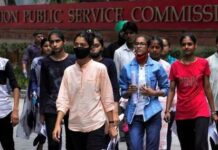Abhay Kumar. Siyasat.net
Shamsul Islam is a former professor of political science at University of Delhi. He is known in academia as a leftist scholar. Apart from academics, he has also been involved in theatre and other cultural activities. He mostly writes on religious fundamentalism. His work on the RSS has been cited by many scholars. But the discussion here I would like to engage into is about his recent piece published almost simultaneously on two web portals. It is about the Tablighi Jamaat and its alleged role in spreading coronavirus. The Tablighi Jamaat—which is made of two Arabic words Tabligh (propagation) and Jamaat (group)—is an Islamic reform movement to teach the basic tenets of Islam to common Muslims and make them pious. Established by Maulana Ilyas, a Muslim religious scholar from Muzaffarnagar in U.P. in the 1920s, the Tablighi Jamaat is a group of Sunni Muslims, which has much common with Deoband school. Over the years it has become an international movement, though its branches work independently in different countries.
After reading Shamsul Islam’s article, one gets a feeling that the author has knowingly or unknowingly done a great harm to the image of the Tablighi Jamaat and put fuel to the communal hatred against minority Muslim community in India. Ever since the raid on the Tablighi Jamaat’s Markaz office in Delhi was done, the anti-Muslim feelings have swept the country, blaming them for being “carriers” of the deadly coronavirus.
More shocking is that the attack on the Tablighi Jamaat has come from a leftist scholar. A common Muslim look at a leftist scholar as a sympathizer, who is sensitive about the minority question. At a time when the Hindutva assault on the minority has intensified, Shamsul Islam’s article creates disappointment.
Let me begin with the summery of what he has said. First, he tried to imply that that the organisations like the RSS, the Shuddhi Movement and the Tablighi Jamaat were established around 1925 with a design. These organisations, in the name of shaping “good Muslims” and “good Hindus” were trying to divide the people on religious lines at a time when they were fighting against the British colonial government. Second, the Tablighi Jamaat has been liked by the RSS as “good Muslims”. In other words, the RSS and the BJP have a tacit understanding with the Tablighi Jamaat. This is a tall statement because the very foundation of the RSS and the BJP is based on anti-Muslim politics. If the Tablighi Jamaat is close to the RSS and the BJP, then the Tablighi Jamaat is not the well-wishers of Muslims. Third, he seemed to be validating the Hindutva discourse that the Tablighi Jamaat was indeed carriers of coronavirus.
As a scholar, he can argue and he can criticise any organisation. But the claim and argument must be substantiated by solid evidence. This is where he has fallen short of standard. His arguments appeared to be superficial and biased.
Let me start with his first claim. Was the Tablighi Jamaat established to divide people on religious lines? In other words, was it working for the British colonial government? In his writing, he threw such a wild allegation but he did not substantiate it with solid evidence. He just quoted a few lines from a speech of the revolutionary freedom fighter Ashfaqullah Khan (1900-1927): “Oh! How can we appreciate the present-day life when our political leadership is going through internal strife? If one is fond of Tableegh [the propagation of Islam] the other believes that dying for Shuddhi only will lead to emancipation”.
Khan’s statement definitely criticized religious revivalist movements. It had to do with the rise of communal tension in the 1920s. For example, eminent historian Sumit Sarkar (Modern India) said that the Tabligh Jamaat came into a reaction of the shuddhi (purification) movement of the Arya Samaj and the Hindu Mahasabha. But even he did not jump to conclusions that the Tabligh Jamaat was a “baby” of the colonial British government. As Sarkar said,
It needs to be emphasized, however, that much of this was a reaction against the very rapid spread of Hindu communalism in those years. Tabligh and tanzim were in large part a response to Arya Samajist shuddhi and sangathan, started after the Moplah forcible conversions and extended in 1923 by Shraddhanand to western U.P. in a determined bid to win back for Hinduism Malkana Rajput, Gujar and Bania converts to Islam. The Hindu Mahasabha, started at the Hardwar Kumbh Mela in 1915 by Madan Mohan Malaviya along with some Punjabi leaders, had become practically defunct in the Non-Cooperation years. A major revival began from 1922-23, and the Banares session of August 1923, which incorporated the shuddhi programme and called for Hindu self-defence squads, represented an alliance of Arya Samajist reformers with Sanatan Dharma Sabha conservatives in a common Hindu-communal front presided over, as usual, by Malaviya (p. 235).
Like Sumit Sarkar, the writings of Islamic scholars of the Tablighi movement such as Syed Abul Hasan Ali Hasani Nadvi (Life and Mission of Maulana Mohammad Ilyas) and Maulana Wahiduddin Khan (Tablighi Tahreek) did mention the threat from the Shuddhi movement. But their histories of the Tablighi Jamaat not only gave no reference to its collaboration, which Shamsul Islam implied, with the British empire but also avoided political discussion. One limitation of their writings is, of course, narrating the history of the Tablighi Jamaat without much talking about the political and economic context. While reading them, I felt this gap. For example, how could the history of the Tabligh movement be told without discussing analysing the events like the mounting communal tension in the 1930s and the 1940s, leading to the Partition. This gap should be filled by taking up a fresh research.
But without citing any solid evidence, Shamsul Islam alleged that the Tablighi Jamaat was working as an enemy of the freedom struggle. Is this not an act of intellectual dishonesty?
His clubbing together the RSS and the Tablighi Jamaat is also flawed. The RSS, though it claims to be cultural organisation, is in fact a political organization. It controls several wings. Its political outfit (the BJP) is the ruling party in India at present. Its militant wing (Bajrang Dal) is involved in anti-Muslim and anti-Christian riots. The RSS does majoritarian politics. Its ideologues were staunch anti-Muslims. The Tabligh Jamaat in India, contrary to them, works among the Muslim minority only, not the majority Hindus. It shuns politics. It has no military wing. It has never been accused of leading a riot or speaking against Hindus. As its stated policy, it deliberately avoids publicity and works without keeping any records or having a formal office. Its members are on the move all the time. In fact, it is meant to work among the common Muslims and teach them the basics of Islam. Knowing Kalimah (the creed of Islam), learning how to offer namaz (prayer), acquiring religious knowledge, respecting Muslims, withdrawing from worldly engagement for religious activities and purifying one’s intensions are some of the basic principles of the Tablighi Jamaat. Some accuse them that it is spreading superstition. But calling it a superstitious body is easy than proving it. Because there is a thin boundary between religion and superstition. Even the rationalists, who often criticise religion and faith, do not realise that their rationality is also conditioned by a particular framework.
But Shamsul Islam went much beyond this intellectual terrain and hurled accusation on the Tablighi Jamaat. He is free to agree or disagree with the Tablighi Jamaat’s ideology and method, but he is not justified to equate it with the RSS. Nor did he produce any evidence to call it an “agent” of the British government.
From here Shamsul Islam arrives at the conclusion that the Tablighi Jamaat was responsible for the Partition of India! As he put it, “The history of freedom movement is witness to the fact that these organizations led to the aggressive currents of Hindu and Muslim separatism, finally, leading to the Partition of India”. Was the Tablighi Jamaat responsible for the division of the country? No. If he had read Maulana Azad’s work (India Wins Freedom), the Congress president in the 1940s, he would not have committed such a blunder. The Partition, as the Maulana concluded, was result of the failure of the Congress to share power with the minority Muslims. He painfully described how Nehru and Sardar Patel turned cold. Finally, the Mahatma gave in to the demands of Pakistan.
From blaming the Tablighi Jamaat for dividing the people on religious lines and contributing to Partition, Shamsul Islam began to tamper with facts. It seems that he reached his conclusion much before beginning his research. As a result, he ended up maligning the image of the Tablighi Jamaat. He tried to imply that the Tablighi Jamaat and the RSS have tacit understanding. He claims that the RSS and the BJP considers the Tablighi Jamaat as “good Muslims”: “TJ has always been on top of the list of ‘good Muslims’ (Rashtriya Muslims) of the RSS-BJP rulers”. But again, he gave no evidence.
In his attempt to establish the Tabligh Jamaat’s nexus with the RSS, he cited two examples. First, he said that the Tablighi Jamaat had not been vocal against the incidents of anti-Muslims riots. It maintained “silence” during Advani’s Rath Yatra (1990), demolition of Babri mosque (1992), and the Gujarat pogrom of 2002 and anti-CAA protest etc. In its defence, one could argue that the Tabligh Jamaat, as it has defined its goal to work among Muslims for bringing them close to the teachings of Islam, deliberately shuns politics. However, its members in their other sphere may participate in political activity. In other words, a Tablighi member can be a politician and he could do politics outside the sphere of the Tablighi Jamaat.
My purpose here is not to defend the Tablighi Jamaat. Nor am I here to say that it is free from controversies. Had Shamsul Islam paid close attention, he would have provided a much solid and internal critique of the Tabligh Jamaat. For example, not all Muslims are members of the Tablighi Jamaat. There is an intense debate and contestation among different schools and sects within Islam. For example, one of the common allegations levelled against the Tablighi Jamaat is that it is “depoliticising” Muslims. In its defence, the Tablighi Jamaat argues that it is not depoliticizing Muslims but making them pious and internally strong. Without the solid base (the piety of hearts), no edifice (no political system) can stand for long. On sectarian lines, there is a huge contestation about its functioning.
For example, two Sunni Muslim groups Barelwis and the Tablighi Jamaat often see each other as rivals. In 2001, a clash between the supporters of the Tablighi Jamaat and the Barelwis in Dahod (Gujarat) was reported in which a large number of Tabligh people were arrested by the police. It is often heard that the Barelwis have prohibited the entry of Tablighi Jamaat people into their mosques.
What is the difference between the Barelwis and Tablighi Jamaat? According to historian Usha Sanyal (Ahmad Riza Khan Barelwi: In the Path of the Prophet), a group of Sunni Muslims were called Barelwis after the late 19th century scholar Ahmad Raza Khan. The term is derived from the north Indian city of Bareilly where Ahmad Riza Khan (1856-1921) was born. Barelwis embrace Sufism and Islamic mysticism, give importance to saintly mediators, believe in miracles and argue that the Prophet had the power of unseen. Some of their ideas are in clash with Deobandi Muslims, named after the Deoband seminary, and Ahl-e-Hadith. As far as the Tablighi Jamaat is concerned, a large group of its activists are graduates from Deoband and Nadwa seminaries.
Though Tablighi Jamaat is said be an international organisation, the reality is that has no centralised authority controlling everything. With the passage of time, the Tabligh Movement got split into several independent organisations, operating separately inside their countries. The Tablighi Movement is just an inspiration for many other such organisations. For example, the Tablighi Jamaats in India, Pakistan and Bangladesh are run separately. Though there is no centralized organisation, Nizamuddin Markaz, being the oldest where the movement was born, is perceived as a “spiritual” centre by a large group of members of the Tablighi Jamaats outside India.
Even within India, a tug of war is going on between two fractions of the Tablighi Jamaat. For example, in 2016 two groups, one led by Maulana Sasd and the other by Maulana Zuhairul Hassan, physically attacked each other inside the Markaz after which the movement split in India. These internal contestations among the several groups of Muslims are conveniently ignored by the Hindutva forces because their main goal is to paint all Muslims with a broad brush. For Hindutva forces, Muslims have no difference. They are one. Shamsul Islam did not try to break the narrow framework.
Ignoring all these complexities, Shamsul Islam jumped to 2017 conference (ijtema) of the Tablighi Jamaat held in Bhopal. In his above-mentioned article, Shamsul Islam carried a picture of the then Chief Minister and BJP leader Shivraj Chauhan being present in the said Tabligh Jamaat’s function. The caption below the photo reads “Madhya Pradesh chief minister Shivraj Singh Chouhan with Tablighi chief”. He also gave a few lines from a statement taken from the chief Minister Shivraj Singh Chouhan. It reads that the chief minister “reached and inspected the Tablighi Ijtema site today. He took stock of the arrangements related to the congregation”.
With this little evidence, Shamsul Islam weaved a conspiracy theory that the Tabligh Jamaat was close to the BJP and the RSS. But it is also a reality that the BJP leader Shivraj Chauhan attended the Tablighi Jamaat’s function as the chief minister of the state and not as the political leader of a Hindu nationalist party. Politicians often do not let go occasion to appear for the sake of votes. Since, he was the chief minister and the function was being held in Bhopal, it may be possible that he invited himself to attend the programme. It could have also been possible that the Tablighi Jamaat might have invited him, in the hope of political protection.
Was he invited? Or did he show his desire to attend the function? No one knows. Shamsul Islam is free to criticize if it was ethical for a political leader from the BJP to attend such a programme. And the Tablighi Jamaat might have been asked to clarify its position. Even if the BJP chief minister attended the meet, it cannot be a conclusive ground to imply that it is an agent of the BJP and the RSS. Visits of politicians and ministers to Islamic seminaries such as Nadwa and Deoband are not uncommon. Even the former Prime Minister Atal Bihari Vajpayee and former BJP president Rajnath Singh have visited Nadwa and met ulama there. Can it be a ground for calling Nadwa a centre working for the BJP and the RSS? One can understand the concern that educational and religious institutions should not give platform to political leaders. But their visit to these Islamic institutions cannot be a basis of alleging their link with the saffron organisation.
The third argument of Shamsul Islam converges on the Hindu right. He held the Tablighi Jamaat responsible for being the carrier of Coronavirus. As he put it, “the reality is that Muslims who attended global meet (March 13-15) at its headquarters followed [Maulana] Saad’s words as divine. They kept huddled in the mosques and refused to be counted as pandemic suspect. As late as April 11, administration is having hell of a time in tracing those who attended the TJ [Tablighi Jamaat] international conference at its headquarters. The health and police teams trying to locate suspects have been attacked”.
Again, Shamsul Islam exaggerated the situation and strengthened the agenda set by the BJP. As a result, he failed in his analysis. For example, the country-wide lockdown was announced in the night of March 24 and it was put in force just four hours after its announcement. The New York Times aptly called the order as “the biggest and most severe action undertaken anywhere to stop the spread of the coronavirus”. If guests and members of the Tablighi Jamaat got stranded in the Markaz HQ, the larger blame should go to the government for announcing the lockdown without giving time to people to reach their destinations. As far as the speech of Maulana Saad, the Tablighi Jamaat’s head, in which he is alleged to have said that he dismissed the guidelines of maintaining social distancing, its authenticity is still in question. But Shamsul Islam used it as a major evidence to build up his argument.
In his article, he did not even care to give space to the Tablighi Jamaat’s point of view. He conveniently ignored the fact that the Tablighi Jamaat issued on March 30 a two-page press statement. Here the Tabligh Jamaat’s leadership, contrary to allegations, argued that some guests could not leave for their homes as the lockdown was abruptly imposed and all means of transport got snapped. It even claimed that the Tabligh Jamaat was cooperating with the police and administration and it did not violate the guidelines.
Despite being a leftist scholar, Shamsul Islam, in his analysis, has ignored the issue from the question of labour. If he has cared to read newspapers after March 24 till March 30, the day of raid on the Tablighi Jamaat, he would not have made such a mistake of blaming the Tabligh Jamaat for spreading coronavirus. A few days after the lockdown, things began to go out of control of the government. Without any package for the poor and the migrant workers, the unrest was erupting on the streets. Hungry and thirsty as they were, the workers were coming out of their places and marching on roads to go home. For a few days, Delhi’s Anand Vihar station was brimming with thousands of migrant workers from UP, Bihar and Bengal, defeating the very purpose of social distancing. At that movement, it was time when the failure of the government was manifest. The government could have managed the situation by announcing a package for the poor and migrant workers. But they decided to play their mastercard, i.e., finding Muslims as scapegoats and blaming the Tabligh Jamaat for spreading the coronavirus. Targeting the weaker sections during the epidemic has a long history. With the help of a pliant media, a narrative was created and spread against Muslims. The focus was suddenly shifted from the suffering of the poor and the workers to the “dreadful” Tablighi “virus”.
Since January 30, the media is spewing venom. Jehalat (ignorance), “suicide bomb”, “anti-national” and “terrorists” were some of the abusive terms hurled at Muslims. They continue to be abused, attacked and economically boycotted. Worse still, there are incidents where the poor Muslim vegetable venders were not allowed to enter Hindu areas. In Gujarat, separate wards for corona positives were created in a hospital on religious lines. These dangerous trends go on unabated.
All these big realities are ignored by Shamsul Islam. Instead, he kept his focus on “misdeeds” of the Tabligh Jamaat. If he thinks that gathering of people at the Markaz spread virus, then he should also look at umpteen other gatherings and equally hold them responsible. Should not the Prime Minister Narendra Modi be blamed for holding a huge gathering in Gujarat for welcoming U.S.A. president Donald Trump for spreading coronavirus? Should not UP Chief Minister Yogi Adityanath be blamed for violating the rules of social distancing by going to Ayodhya and performing the pooja? Should not the government be blamed for the huge gathering of the workers in Delhi, Mumbai and other places? Should not the government take appropriate steps to test nearly two million air passengers coming from abroad in March? If holding a gathering is a crime, why should Shamsul Islam blame the Tablighi Jamaat alone? (Views are personal). Courtesy Milli Gazette)
(Abhay Kumar is a Ph.D. from JNU. He is interested in minority rights and social justice.)


































It is the height of intellectual dishonesty to accuse Tabling Jamadar with RSS by Shamshuddeen Islam without producing convincing evidence. He too is trying to maintain balance to avoid being called a minority appeasement.
Comments are closed.